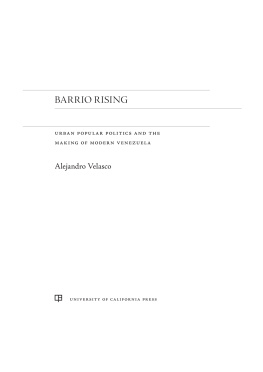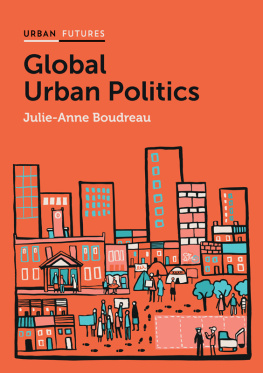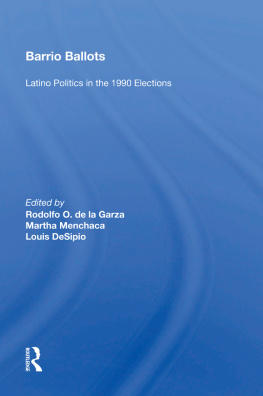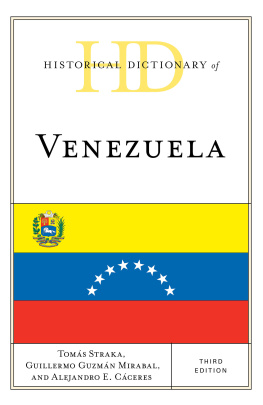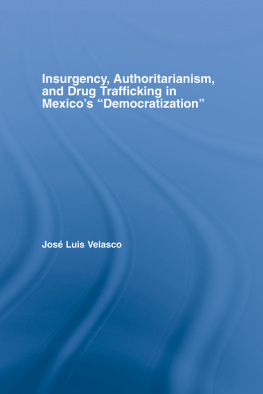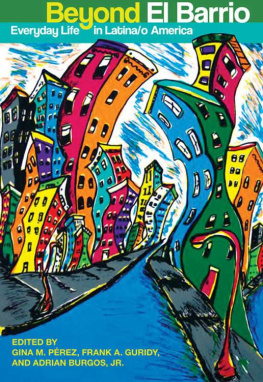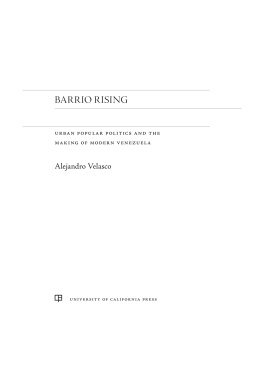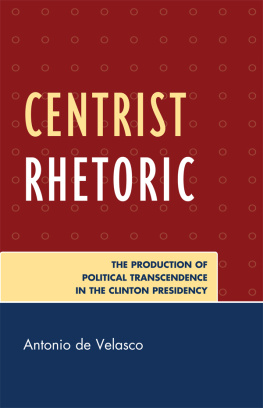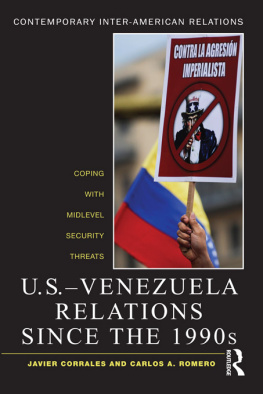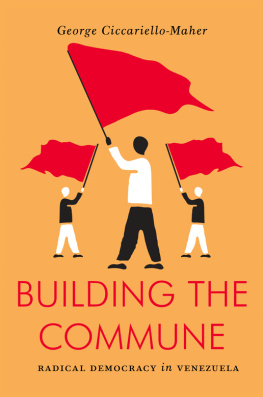Velasco Alejandro - Barrio Rising: Urban Popular Politics and the Making of Modern Venezuela
Here you can read online Velasco Alejandro - Barrio Rising: Urban Popular Politics and the Making of Modern Venezuela full text of the book (entire story) in english for free. Download pdf and epub, get meaning, cover and reviews about this ebook. year: 2015, publisher: University of California Press, genre: Politics. Description of the work, (preface) as well as reviews are available. Best literature library LitArk.com created for fans of good reading and offers a wide selection of genres:
Romance novel
Science fiction
Adventure
Detective
Science
History
Home and family
Prose
Art
Politics
Computer
Non-fiction
Religion
Business
Children
Humor
Choose a favorite category and find really read worthwhile books. Enjoy immersion in the world of imagination, feel the emotions of the characters or learn something new for yourself, make an fascinating discovery.
- Book:Barrio Rising: Urban Popular Politics and the Making of Modern Venezuela
- Author:
- Publisher:University of California Press
- Genre:
- Year:2015
- Rating:3 / 5
- Favourites:Add to favourites
- Your mark:
- 60
- 1
- 2
- 3
- 4
- 5
Barrio Rising: Urban Popular Politics and the Making of Modern Venezuela: summary, description and annotation
We offer to read an annotation, description, summary or preface (depends on what the author of the book "Barrio Rising: Urban Popular Politics and the Making of Modern Venezuela" wrote himself). If you haven't found the necessary information about the book — write in the comments, we will try to find it.
Barrio Rising: Urban Popular Politics and the Making of Modern Venezuela — read online for free the complete book (whole text) full work
Below is the text of the book, divided by pages. System saving the place of the last page read, allows you to conveniently read the book "Barrio Rising: Urban Popular Politics and the Making of Modern Venezuela" online for free, without having to search again every time where you left off. Put a bookmark, and you can go to the page where you finished reading at any time.
Font size:
Interval:
Bookmark:

The publisher gratefully acknowledges the generous support of the Humanities Endowment Fund of the University of California Press Foundation.
Alejandro Velasco

UNIVERSITY OF CALIFORNIA PRESS
University of California Press, one of the most distinguished university presses in the United States, enriches lives around the world by advancing scholarship in the humanities, social sciences, and natural sciences. Its activities are supported by the UC Press Foundation and by philanthropic contributions from individuals and institutions. For more information, visit www.ucpress.edu.
University of California Press
Oakland, California
2015 by The Regents of the University of California
Library of Congress Cataloging-in-Publication Data
Velasco, Alejandro, 1978 author.
Barrio rising : urban popular politics and the making of modern
Venezuela / Alejandro Velasco.
pages cm
Includes bibliographical references and index.
ISBN 978-0-520-28331-2 (cloth : alk. paper) ISBN 978-0-520-28332-9 (pbk. : alk. paper) ISBN 978-0-520-95918-7 (ebook)
1. Political participationVenezuelaCaracas. 2. City planningPolitical aspectsVenezuelaCaracas. 3. SquattersPolitical activityVenezuelaCaracas. 4. VenezuelaPolitics and government20th century. I. Title.
F 2341. C 257 V 45 2015
987.063dc232015006420
Manufactured in the United States of America
24 23 22 21 20 19 18 17 16 15
10 9 8 7 6 5 4 3 2 1
In keeping with a commitment to support environmentally responsible and sustainable printing practices, UC Press has printed this book on Natures Natural, a fiber that contains 30% post-consumer waste and meets the minimum requirements of ANSI / NISO Z 39.481992 ( R 1997) ( Permanence of Paper ).
In late July 2014 authorities in Venezuela began to relocate over 3,000 men, women, and children from the downtown Caracas slum where they had lived since 2007 into newly built government housing on the citys outskirts.
Yet news of this particular eviction in Venezuelas capital spread worldwide. Reuters and the Associated Press highlighted the item in their wire. From there, hundreds of outlets picked up the story.
In fact, this was no ordinary slum. In September 2007 a group of men and women in search of a place to live broke through the ground-floor fence of a half-finished 45-story skyscraper in the heart of Caracass financial district and claimed the building as their own.
Over the next seven years, the story of a skyscraper built to symbolize an era of capitalist ambition, then abandoned, then forcibly occupied by citizens at large in the midst of a socialist revolution captivated journalists, architects, and academics. Their accounts varied wildly. For some the Tower became a last resort for the desperate, hated by society, a conundrum for the government.
But when stripped of hyperbole and dramatic license, for others, including its residents, the Tower and the life they crafted for themselves stood not for violence but for popular ingenuity and even hope, precarious and sometimes dangerous, to be sure, but also stable and removed from the most extreme perils of poverty.
Yet for all the attention the Tower and its residents mustered, in print or film or web traffic, the most remarkable feature of all went unremarked: this phenomenon had happened before. Not somewhere else in the world, or even elsewhere in Latin America, but in Caracas, in fact just over a mile from where the Tower of David stood.
In January 1958 thousands of apartments lay vacant in still-unfinished fifteen-story superblocks built by the dictatorship of Marcos Prez Jimnez to house the citys poor. It was his grand plan for a modern Venezuela where sleek high-rises would replace ramshackle barrios slums in Venezuelan parlanceand turn a long-chaotic Caracas into a model of order and progress, no matter who or what stood in his way. He built them in the heart of the capital for all to marvel. In time, his uncompromising vision spawned calls for his ouster, and on 23 January 1958 a group of military officers and civilians, buoyed by the public at large, overthrew Prez Jimnez and promised to usher in a democratic revolution. As word spread, twenty thousand people across Caracas and its surroundings rushed to the empty superblocks. Two days later, they had occupied every vacant apartment in sight, 3,000 in all.
Once a symbol of dictatorship, the dozens of high-rises Prez Jimnez ordered built in downtown Caracas now stood as an emblem of the revolutionary fervor that overthrew him; their new inhabitants even took as the neighborhoods name the date of his ouster: de Enero (23rd of January). But it was hardly good news for the new government, suddenly responsible not just for completing but for administering the signature project of the previous regime, now packed with tens of thousands of squatters. Staggering operating costs coupled with the new governments general disdain for the deposed dictators brand of urban planning gradually caused living conditions to deteriorate, generating deep friction that often manifested itself in violent protest. Meanwhile leftist guerrillas in pursuit of state power took advantage of the neighborhoods location to launch attacks on the government. Eventually the 23 de Enero came to be seen as a lawless place, a tangle of high-rise slums amid new slums that rose up around the superblocks. For many it seemed to mark a failure of two regimes: the one that built it and the one that inherited it.
But the men and women who took up residence in the neighborhood had laid claim not just to physical space but to the promise of a more inclusive, more responsive, more democratic society. From their perch overlooking downtown Caracas, they continued to hold the government to account through a variety of means available to them. At times they took to the polls, less to support those in power than to uphold a key tool of democratic citizenshipthe vote. At times they took to the streets, not to seek anyones ouster but to demand solutions to their grievances and, more significantly, a greater say in the political system. In the process, they fashioned a spaceand an understanding of democracyat once part of the state and outside of it, at once deeply bound to the underpinnings of the political project but also, by their actions and by their very existence, sharply critical of it.
The parallels between the 23 de Enero and the Tower of David are thus striking; that not a single story made mention of it, domestically or abroad, is less so. Venezuelas past remains caught in what anthropologist Fernando Coronil has called a collective amnesia that envelops the dominant memorialization of Venezuelas history. Induced by illusions of limitless wealth fueled by oil booms, successive governments and their analysts over the last hundred years in Venezuelawhether dictatorial or democratic, socialist or capitalist, modernist or provincialhave taken to manufacturing collective fantasies of progress in which vast state spending casts its spell over audience and performers alike. As a magnanimous sorcerer, continues Coronil, the state seizes its subjects by inducing a condition or state of being receptive to its illusionsa magical state. In this sense, for political elites survival relies on perpetuating an ever more dazzling vision of the future with ever more spectacular displays of power in the present. But as there are oil booms there are also oil busts, ensuring that over time the breach between future and present will expand unsustainably. Reaping the benefits of a spectacular present unable to keep pace with a magical future therefore requires eliminating memories of a well-trod past, lest the memory of that past expose the precariousness of a magical future.
Font size:
Interval:
Bookmark:
Similar books «Barrio Rising: Urban Popular Politics and the Making of Modern Venezuela»
Look at similar books to Barrio Rising: Urban Popular Politics and the Making of Modern Venezuela. We have selected literature similar in name and meaning in the hope of providing readers with more options to find new, interesting, not yet read works.
Discussion, reviews of the book Barrio Rising: Urban Popular Politics and the Making of Modern Venezuela and just readers' own opinions. Leave your comments, write what you think about the work, its meaning or the main characters. Specify what exactly you liked and what you didn't like, and why you think so.

